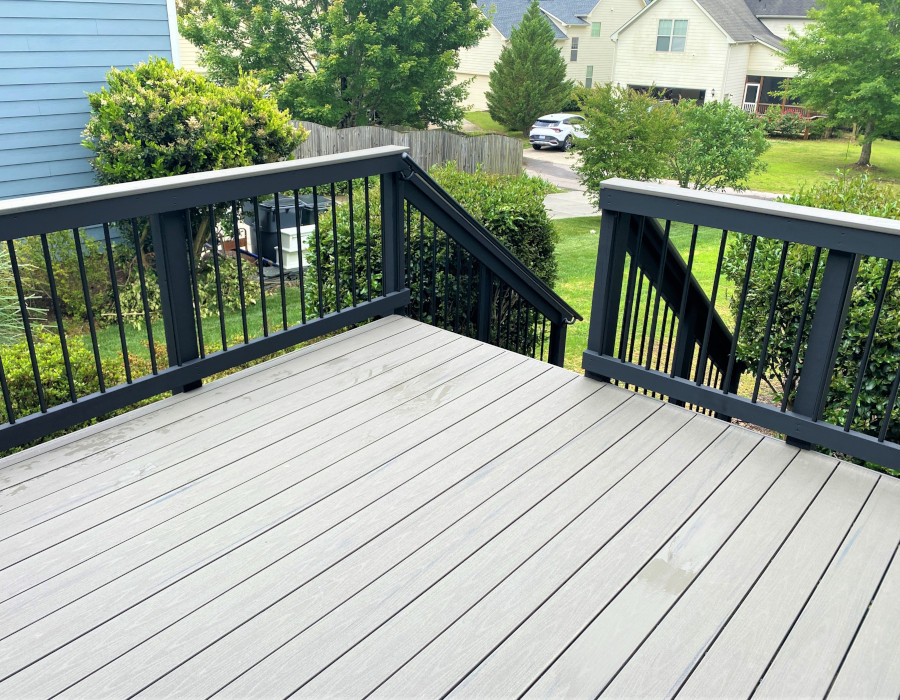Archadeck Frequently Asked Questions: Composite Decking
Are you dreaming of a new outdoor living space? What type of materials do you want to use? Choosing between composite and natural wood decking can be hard. At Archadeck, we field lots of questions about materials, especially composite decking. The most common question is whether composite decking, which is traditionally more expensive, is worth the added investment. What do you think? Read below to see Archadeck’s answer to this and other frequently received composite decking questions.
Can you stain composite decking?
Most synthetic decking is capped with polymer or PVC. This barrier blocks out moisture, which is crucial to the longevity of composite decking. The barrier also means that stain cannot penetrate the interior composite material. Therefore, composite decking does not need to be stained to seal or protect it. This is one of its primary low-maintenance benefits.
Can composite decking be painted?
Our featured brand, TimberTech® by AZEK, does not recommend using any type of paint on composite decking as it cannot guarantee the paint’s performance on its product. Fortunately, TimberTech® by AZEK offers a variety of composite decking colors. Our team is happy to help you choose the right color for your project.
Does composite decking get hot?
Early versions of synthetic decking were known to get quite hot, but this has improved over time. While all decking boards, wood or composite, will eventually get hot in direct sunlight, TimberTech® Advanced PVC decking absorbs and retains less heat than its wood or capped-composite counterparts. This is due to the proprietary polymer material it uses in the cap and the core. For more information on hot temperatures and different decking materials, including composite, take a look at our video...
Is composite decking slippery?
The earliest generations of composite decking were slipperier than wood. They featured a polymer coating that was so smooth it did not offer good traction. Current composite decking has evolved to mitigate this issue. For example, the polymer coating of TimberTech® Advanced PVC decking is engineered specifically to be slip-resistant and mold resistant, reducing the likelihood of slipping on mold or mildew growth. It is also important to keep composite decking free of dust and debris, which can create slipping hazards.
Is composite decking worth it?
The question we receive most often about composite decking is whether it is worth the cost. This is something only the homeowners can decide because “worth” may mean different things to different people. Ultimately, it all comes down to value. 
Does composite decking pay off financially? Yes, in most cases. Choosing between natural wood and composite decking depends on your immediate and long-term goals. For instance, someone adding a deck before selling a house would probably prefer natural wood as a more cost-effective investment. However, for people planning to stay in their homes for a long time, saved maintenance costs will add up fairly quickly in the coming years.
Is composite decking worth the upfront investment in terms of performance? Yes, homeowners can enjoy the benefits of composite decking in the short- and long-term. Composite decking doesn’t splinter and is softer on your feet. It is mold, mildew, insect, and moisture resistant, which adds to its longevity. Composite decking is backed by incredible warranties so if any problems do arise, they are likely to fall under warranty. Lastly, composite decking will last for decades, and it will never need to be painted or sealed. In today’s busy world where free time is limited, this can be a significant benefit.
If you’re considering composite decking for your next outdoor living project, call Archadeck of Raleigh-Durham to get started: (919) 446-5585. We look forward to working with you!